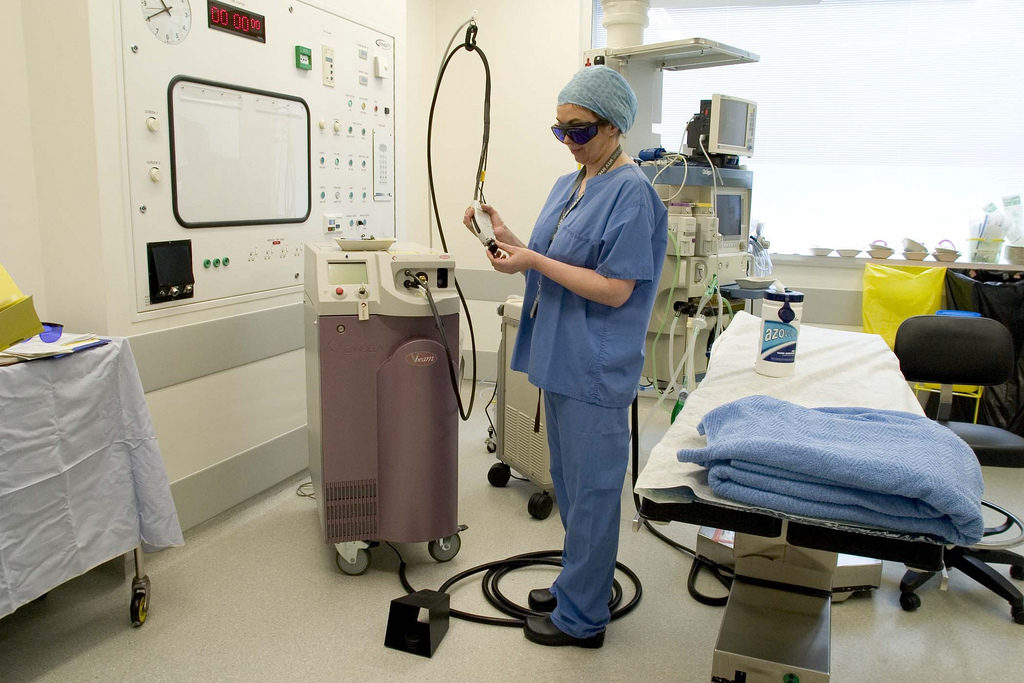There has been a wave of contention surrounding Medicaid expansion in Virginia, resulting in the House of Delegates voting to go forth with Obama-era Affordable Care Act (ACA) measures and the Senate voting down the expansion. Although the impasse has caused a Special Session to be created to resolve the budgetary impacts, one issue that is being worked on that may not receive the mounds of attention of expansion is decreasing healthcare costs.
“Health care should be a nonpartisan issue,” said Dr. Daniel Carey, Governor Ralph Northam’s Secretary of Health and Human Resources.
Even though the Lynchburg cardiologist and former chief medical officer for Centra is a strong advocate for Medicaid expansion, he is looking to tackle the task of lowering healthcare costs for Virginians. One major way he believes this can be accomplished is decreasing the use of procedures and tests that provide little value to patients while making sure the state continues to invest in care that provides high value, according to The News & Advance.
The secretary explains that routine vitamin D testing provides little value, whereas its more cost effective to treat most patients with vitamin D supplements. Moreover, routine echocardiograms and stress testing a person before a non-cardiac procedure or surgery are other things that are highly unlikely to augment the care patients receive.
“We need to eliminate that because it’s not cost-effective care,” Carey said.
Therefore, Carey will be advocating for the implementation of the “Choose Wisely” principles in patient care. The program was launched in 2012 by the American Board of Internal Medicine Foundation with input from 100 medical specialty groups, all of which created a vast lists of overused treatments and unnecessary tests.
The program will help doctors, healthcare workers give care to patients that is: supported by evidence, not duplicative of other tests or procedures already received, free from harm, and truly necessary, according to the ABIM’s initiative.
Through a recent statement, Carey said the Commonwealth cannot mandate the measures provided by ABIM. Though, he explained, “What we can do is work with the state plans, [The Department of Medical Assistance Services], and the Virginia Center for Health Innovation to not cover low-value care.”
Apart from cutting the fat from medical services, Carey is also looking to bolster initiatives that speed up surgical recovery times, getting people out of the hospital quicker. Modeled on a program already in place at Virginia Commonwealth University Health System’s colorectal surgeries, specific intervention is decreasing hospital stay times for surgical patients.
Dr. Traci Hedrick, co-director of the Enhanced Recovery Program at the University of Virginia Health System said that in her personal experience with the program, “there was a $6,567 per patient reduction in total hospital costs.” Her system’s results with “enhanced recovery protocols” have resulted in an average reduction of two days for hosptial stays. Furthermore, there was a 50 percent reduction in post-surgery medical complications and an 80 percent decrease in opioid or painkiller use.
Hedrick claims that the best way to increase recovery times after surgery is for patients to be as healthy as possible before the procedure. She explained that a healthy body is better able to withstand the effect surgery has on a patient.
Delegate Kathy Byron (R-Bedford) had healthcare costs on her mind during the recently-adjourned General Assembly session. With Carey’s new mission of lowering healthcare costs for Virginians, she believes the high price of care for many under the ACA can be reduced by getting rid of necessary care and modernized procedures.
“I am hoping to work with Dr. Carey on lowering the cost of health care in Virginia. As Chairman of the Health Insurance Reform Commission, I am optimistic Dr. Carey will be a working partner in reforming Virginia’s restrictive and costly COPN [Certificate of Public Need] laws and in mitigating the high costs of coverage associated with Obamacare,” Byron said.

